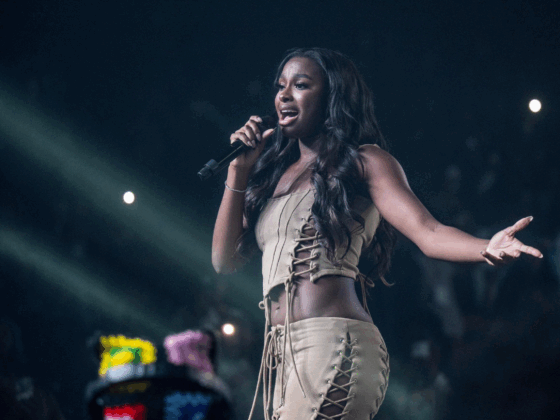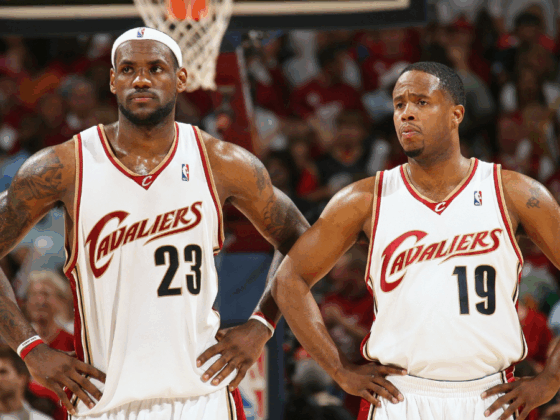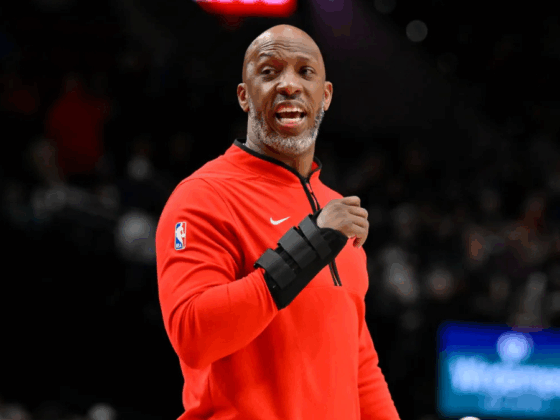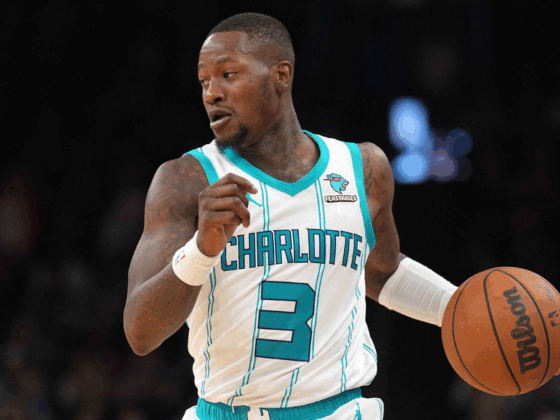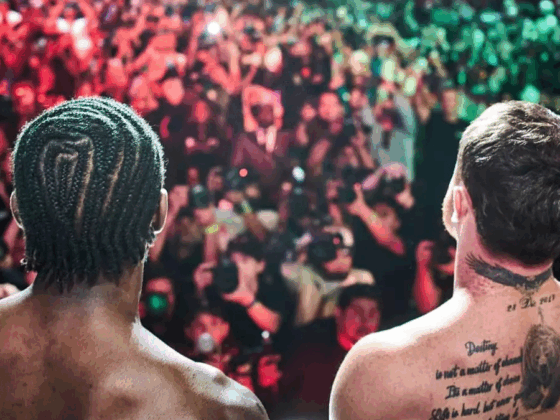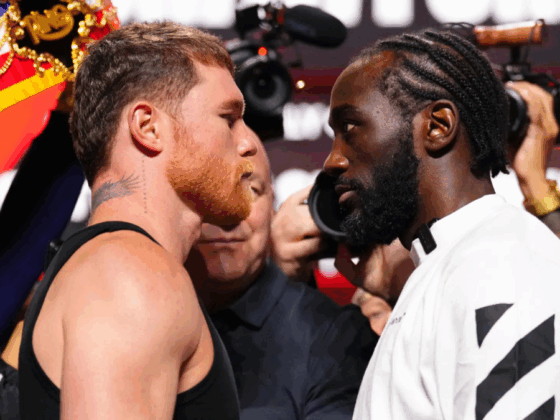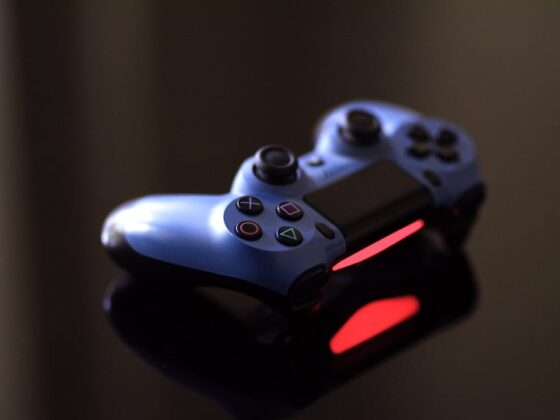
We would all love to control how people perceive us. The fact of the matter, however, is that becoming too obsessed with such things often backfires. It leads to people thinking we’re too contrived, too self-indulged. Allowing the forces of nature to lead people to think what they want, on the other hand, can be a sign of confidence. Professional sports leagues, like any of us, battle with this, too. Controlling the narrative is important for sports leagues. But the more power exerted into controlling the message a league has, the more power over the said message they seek. David Stern was guilty of overreach when he ran the NBA. But the torch has been passed. It is in this area that the NFL, specifically Commissioner Roger Goodell, needs to realize less is more.
There’s little in sports more annoying to the average fan than the meddlesome owner. On a league-wide scale, the meddlesome commissioner can be just as corrosive.
Leadership Overreach
When the NBA was under David Stern’s rule, the way in which the league was covered was closely monitored. Luckily for Stern, he never really had to deal with social media culture, and issues that could have sparked controversy were largely kept in-house. But we didn’t know or realize these machinations were at work in real-time. Looking back, some of the instances the thin-skin of Stern’s NBA created a less enjoyable product for all of us. Or at the very least, a less honest conversation around the league.
Perhaps the lowest moment of Stern’s NBA was the “Malice at the Palace” where several Indiana Pacers went fought Detroit Pistons’ fans. Go back and watch the ESPN postgame show immediately following the incident:
https://youtu.be/3cH2TX0jSPA
While nobody excuses the actions of the players, the commentators openly blame the fans as well. With good reason(s).
Now, juxtapose that with an interview John Saunders (Rest in Peace, John) did on ESPN’s Dan Le Batard Show ten years later (found here, starting at the 1:19 mark). Saunders openly says he got orders from then-head of ESPN Mark Shapiro to change his tune.
Now, did those orders come from David Stern? There’s no evidence of that. But, ESPN did feel the need to alter the narrative, which undoubtedly was of the NBA’s best interest. Because you can criticize just about anybody in sports, but lay off the paying customer, right?
Suspicious Timing
Turn on any ESPN TV or radio station, it’ll take mere minutes for you to see or hear somebody say something crazy. Why was it necessary for ESPN to impede on its on-air personalities’ opinions regarding the fight in Detroit? Because it would put the narrative on ESPN at odds with the narrative the NBA wanted. And because ESPN is in a billion dollar business relationship with the NBA, those narratives need to be aligned. It doesn’t really matter if Stern was involved in ESPN squashing the blame-the-fans narrative. Because it matters that it happened. It matters that it resulted in a less honest conversation about what happened.
When Stern was in charge of the NBA, he collected power. Stan Van Gundy is convinced Stern stopped his ESPN career before it started.
Perhaps nothing more symbolizes the point of all this (and how everything has unintended consequences) better than this: Stern, in the early-2000s, was so concerned with the NBA’s perception of being too “gangster” that he instituted a dress code for the players. The result? The most-fined player for violating said dress code was one of the least “gangster” players in the league, Steve Nash.
Commissioner Roger Goodell’s Turn
That’s the torch Commissioner Roger Goodell and the NFL now carry. Only the NFL has its paws in many more pots than the NBA ever has, or does. Every major sports outlet that has access to the NFL is invested in the NFL product. Because of that, the narratives are always funneled through a keep-the-NFL-happy spectrum. ESPN, CBS, Fox, and NBC all air NFL games. Even Twitter has gotten in on the action. With Amazon and other streaming services rumored to follow. Those games bring in millions of viewers every week and billions of dollars every season.
The “Protect the Shield” culture of the NFL has now led to a new power-hungry commissioner and a censorship of criticism.
It’s well-documented the NFL has not exactly welcomed studies dealing with concussions. But by shunning information, they’re doing way more damage to the league’s reputation in the long run. And putting the players at risk without equipping them with all the knowledge they should have. All while still pushing the league towards an 18-game regular season schedule.
Also, let’s not forget about Bill Simmons. Then at ESPN, Simmons received a suspension when he called Goodell a liar. Maybe he deserved the suspension. Orders might not have come from Goodell. But, if ESPN and the NFL were not business partners, the suspension is less likely given.
All things considered, Roger Goodell displays two qualities that aren’t good for someone in charge:
1) Commissioner Roger Goodell Changes Based on Public Opinion
When Goodell changed course based on public opinion, the Ray Rice fiasco went from bad to worse. Before the video surfaced, Rice drew a two-game suspension. His suspension then changed post-video, based largely on the public outcry. As damning as the video was, it did not provide any new information. It only confirmed prior allegations. Changing the decision based on TMZ clicks and ESPN talking heads displayed weakness in the process, not real leadership.
To satiate the masses, the NFL instituted a mandatory six game suspension for first time domestic abusers. Except, no, they didn’t. Former kicker Josh Brown abused his wife for years and has admitted as much. In 2015 (a year after Ray Rice), the New York Giants gave him a new contract. After the domestic violence charge. The NFL gave Brown a two-game suspension. (What happened to the mandatory six?). Again, public outcry became so corrosive that the Giants ultimately released Brown.
The 6 games for Zeke, 1 for Josh Brown stuff gonna have you answering some tough questions @nflcommish
— Jeff Cavanaugh (@JC1053) August 11, 2017
Additionally, all of this is taking place when the NFL has taken its most draconian measures against drug users. Specifically, those who test positive for marijuana.
2) Commissioner Roger Goodell Takes Things Personally
In hindsight (or even in the moment), it feels like #Deflategate was one of the dumbest non-controversy controversies in sports history. And it was so because Commissioner Roger Goodell was Tom Brady’s appeal of his suspension as a direct threat to Goodell’s power. It got personal. And Goodell wasn’t going to quit until he got what he wanted, Brady on the sideline for several weeks.
For many players, the bro-hug they receive at the draft is the first and last time Goodell treats them as a partner in the NFL enterprise. In all other matters, he sees the players as his subordinates. Which technically they are, but the league needs the players more than it needs Roger Goodell. Professional athletes aren’t your run-of-the-mill employees. They’re the reason the league exists. And the primary assets that make the NFL a multi-billion dollar business.
The Angry Mob Can’t Rule
If the NFL were as principled as it promotes itself to be, public anger wouldn’t shift league decisions so much. The best leaders trust their own decision-making in the face of backlash. For David Stern and Roger Goodell, it might seem like a good idea to take a the-fans-are-always-right approach.
In reality, that’s a really narrow scope that only satisfies a fraction of the total fan base. It’s a prison-of-the-moment mindset. The majority of fans – even if they don’t realize it – would rather go through a single 24-hour news cycle upset than going through another #Deflategate. That’s the flaw in the David Stern/Roger Goodell line of thinking. Upset fans will forget. The contestant wavering and inconsistent leadership will eventually turn off the larger general public. Unfortunately for the NFL, Roger Goodell might end up the last to realize it.
Goodell Won’t Stop, Can’t Stop
For anyone who thought Commissioner Roger Goodell may have learned from past mistakes, think again. The ongoing case of the NFL v. Ezekiel Elliott has all the makings of another long, mundane case that gets drug out in the legal and public sphere.
The NFL under Commissioner Roger Goodell has shown that it can bend to public pressure when it shouldn’t and has a very selective memory when dealing with cases of player discipline.
Cowboys: Zeke isn’t getting suspended.
Goodell: pic.twitter.com/Fq00y0667q
— Kyle Madson (@KyleAMadson) August 11, 2017
Roger Goodell doesn’t know he’s the biggest threat to long-term league stability. It’s up to the owners and players to challenge his power.
